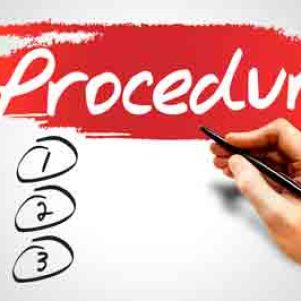The price of housing in Spain has fallen 31,3% since the beginning of the crisis and, although the current Spanish economy begins to grow, housing prices continue to decline. This encourages investment in the country and an increasing number of foreign citizens opting to acquire property in Spain. The acquisition of property in Spain by a non-resident foreigner is a simple procedure that can be summarized in seven easy steps. In any case, a foreign investor should have access to a lawyer specializing in this matter.
Obtaining a Foreign identification number (NIE)
A foreign investor must have an NIE (foreign identification number), essential for any type of transaction in Spain.
Barring exceptional circumstances, the procedure for obtaining an NIE begins at the Consulate of Spain in the country of origin, certifying the reason for the request. The NIE can be obtained within one week from the initial request, although the time depends on the type of permit requested. Once obtained, the non-resident foreigner can start acquiring property. To expedite the processing of the NIE, your lawyer can draw up a deposit contract.
Opening a bank account
A bank account is necessary to prove the means of payment for a property by the purchaser and the payment of expenses and taxes inherent in the acquisition. Although this requirement is not mandatory, it is advisable to have a bank account in Spain as all taxes and expenses associated with buying a home must be paid in Spain, and having a bank account simplifies the process. Your attorney can take care of this process.
Signing the deposit contract
A deposit contract is a legal agreement that reserves the right to housing by delivering an amount of money as a deposit. Deposit contracts are the most common and are concluded under Art. 1454 of the Spanish Civil Code.
Execution of the public deed of sale
A buyer and seller must agree on a date to appear before a notary who will attest to the transfer and acquisition of the property by granting a public deed. The buyer need not be present since a lawyer can represent the buyer after such powers are conferred to the lawyer.
Payment of taxes and expenses
- The sale of a new building involves the payment of the following taxes:
- VAT: The nature of the property determines the applicable tax rate: a 10% tax rate will apply if the property is a home. A 4% tax rate will apply if the property is subsidized by a special property or public housing promotion regime.
- The transfer tax and stamp duty is not payable if the house is new.
- The second or successive transfer of real estate is subject to the following taxes:
- Transfer tax and stamp duty: The transfer value of the asset will be the basis for the calculation of this tax. The tax will vary between 6% (Navarra) and 10% (Catalonia) according to the autonomous community where the property is located.
Your attorney will inform you about the taxes and charges on the property that you want to purchase.
Registration in the land registry
After payment of the transfer tax, the deed must be registered in the Land Registry corresponding to the location of the acquired property. Your lawyer has the power of representation to register the property. The purpose of registration in the Land Registry is to provide greater legal certainty to a buyer since registration has legal effects against third parties.
Notification to the directorate general of the land registry
A cadastral declaration is an instrument (an administrative record describing the rustic, urban and special features of the property) informing the Land Registry that there has been a change in the property that affects its land registry description. The deadline for filing the declaration is two months from the day following the execution of the deed. The declaration must be presented to the local office or unit of the Land Registry or the Delegation of Economy and Finance of the locality where the property is located. You can rely on your attorney to comply with this notification requirement.
Law 14/2013, of 27 September 2013, to support entrepreneurs and internationalization
Law 14/2013, of 27 September 2013, to support entrepreneurs and internationalization provides for the granting of residence permits for foreigners who acquire real estate in Spain of an amount equal to or greater than €500,000— free from all charges and taxation. It is not necessary to carry out the full investment at once. Several investments may be completed to reach the sum of €500,000.
Click here for more information about the law
Jaime Cereceda
If you need additional information regarding the acquisition of a property in Spain,





